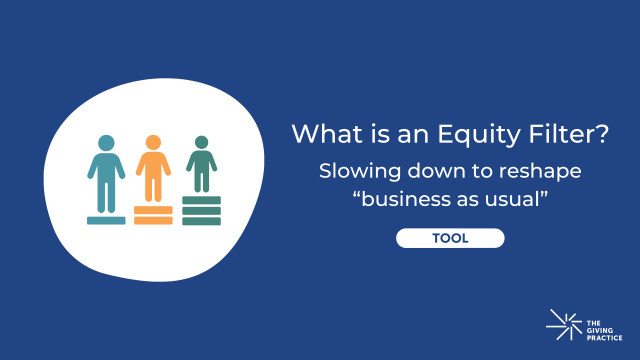
Have you ever wanted to help…
- Shift a group’s thinking from the tactical to the strategic?
- Add the voice or perspective of the client/recipient to deliberations?
- Reconnect a planning conversation to its original intention?
Poetry gives us permission and access to go through, under or around topics that are resistant to direct approach. You can use poetry to provide the spaciousness and distance that invites curiosity and a different kind of conversation. Enjoy, use, and add to this selection of reflective poems to center yourself or to open up discussion on a challenging topic with others.
Read what your colleagues have offered and please contact me to add poems here.
– Ted Lord, Senior Partner at The Giving Practice
Use Poetry to Shift Your Perspective
|
Kevin Walker, president and CEO of Northwest Area Foundation Here are two poems that help me shift my perspective on challenges in healthy ways: |
|
|
The first, a tiny poem by A.R. Ammons that hangs beside my desk, reminds me not to take myself or our work too seriously. The second is a spectacular little piece by the Australian poet Les Murray. It reminds me to think big in space and time, but I love the way it circles back in the end (as Murray always does) to people, and our responsibility to one another. Correction Ernest Hemingway and the Latest Quake
|
|
Use Poetry as a Speed Train
|
Mauri Ingram, president and CEO of Whatcom Community Foundation |
|
|
This particular poem speaks to both the human condition and the role of community philanthropy. It reminds us that we do what we can to tend, remain aware of our ever changing environment and grasp at control. In community philanthropy, we are accountable and yet in control of virtually nothing (if we are doing our work well). It also speaks to the tension between urban and rural: the constant tug and the differential in their relative gravities. I’ve used spoken word most often as a speed train to help group members to be fully present. My first exposure to the practice was at a conference session on arts and culture. In that case, it also reminded the group of the essence of why we gathered. On a personal level, poetry quiets my mind and opens up my mind to differing points of view. It’s a stretching exercise for my brain. Flying at Night
|
|
Use Poetry as a Reminder to Break
| Judy Pigott, board member, Satterberg Foundation | |
|
I loved this when I happened upon it recently. Now, from the beautiful big sky area that is Sun Mountain, it’s better than ever. And it seems to me to be a most appropriate way to view our inclination to rush toward connection while not knowing how to engage honestly, our desire for economy of scale and efficiency while not knowing how to avoid becoming needlessly caught in bureaucracy. There Are Many Ways to Move Through Our Day
|
|
Use Poetry to Get Intentionally Lost
|
Richard Woo, CEO of The Russell Family Foundation Although it urges action, it does so in the belief that getting lost in purposeful work is a virtue. |
|
|
To Be of Use
|
|
Use Poetry as a Reminder to Create Space
|
Ted Lord, senior partner of The Giving Practice |
|
|
This is one of my all time favorites. The Low Road This piece is first on my list of poems that spur reflective practice and has done the most to inform my practice in the last decade. Fire
|
|
Use Poetry to Start a Conversation
|
Shin Yu Pai, Grants & Workplace Giving Manager at ArtsFund Rhina Espaillat’s poem “Significant Other” can be used to start a conversation about exclusion, race, ethnicity and culture. |
|
|
Significant Other |
|
For more information about Reflective Practices, please click here.









